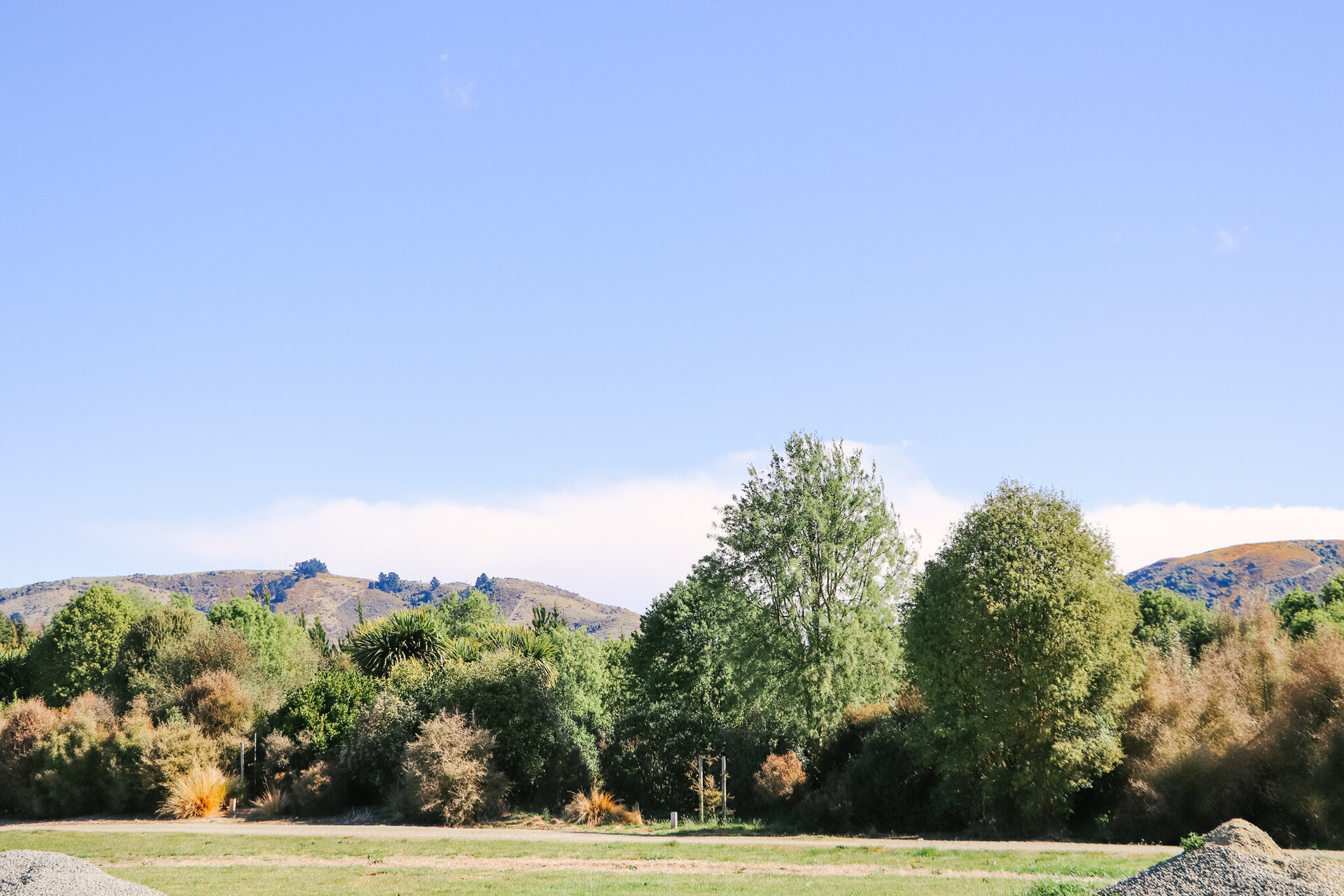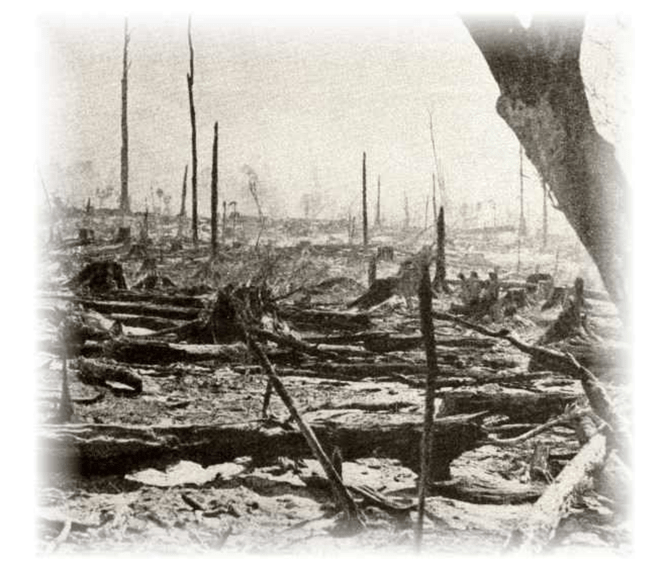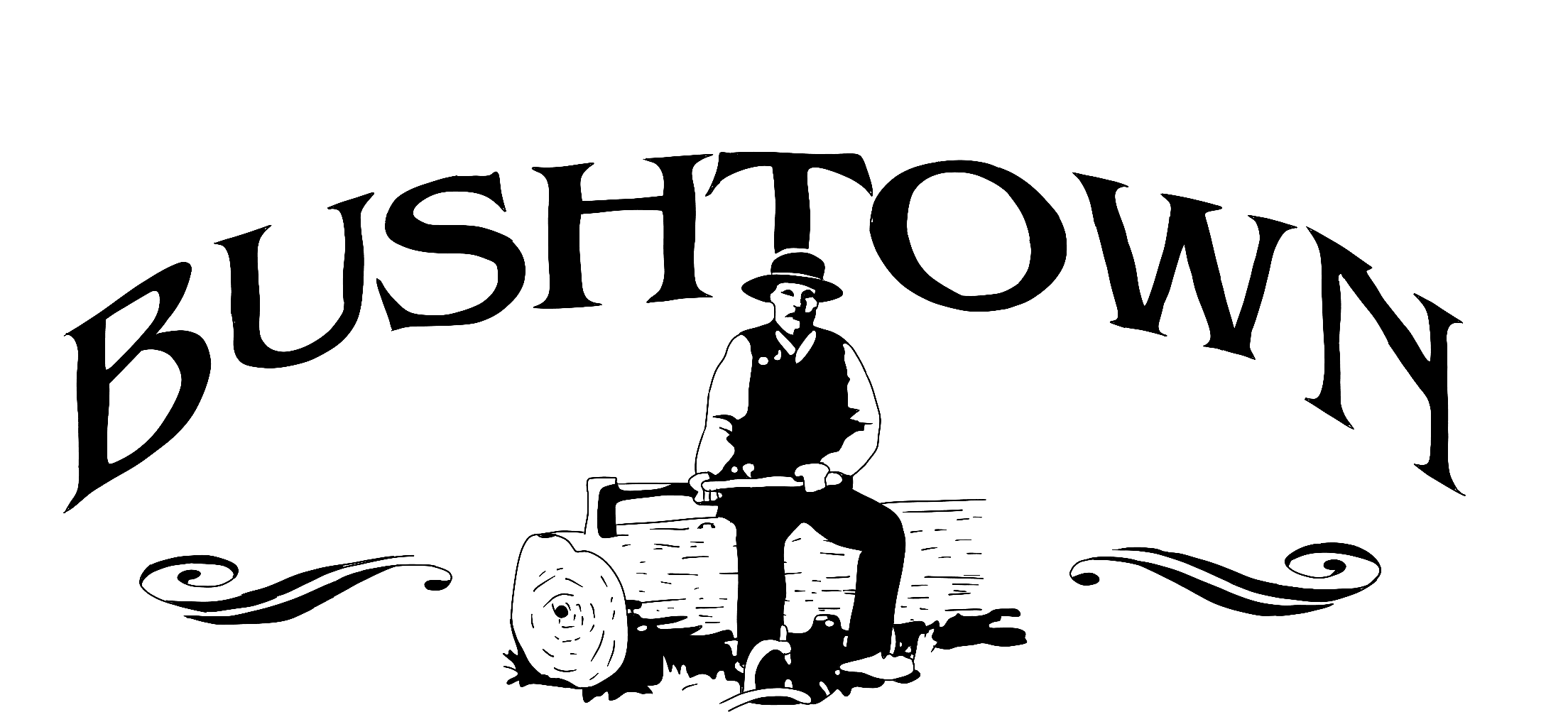The 'big burn' began innocuously enough on 12th November with grass fires on Hunters Hills set by musterers. One was still burning three days later when a spring nor'-wester gale put in an untimely appearance. This was no ordinary wind. In Timaru, where a falling chimney claimed the lives of a mother and child, the Timaru Herald declared that 'without in any way exaggerating, we may say that South Canterbury was ... visited by the heaviest north-west gale which has visited the district since its settlement'.
At St Andrews the railway station was blown off its piles. Timaru citizens sheltered indoors, the clouds of dust whipped up by the shrieking gale making it foolish to venture outside. From Christchurch in the north to Port Chalmers in the south, haystacks disintegrated, fences collapsed and roofs took to the air.
It was at Waimate Bush, though, where the gale struck hardest. While townsfolk sheltered indoors worrying about their roofs, those grass fires, fanned to intensity by the wind, started gathering momentum; sparks lofted into the air set fire to already smouldering piles of woodchips and sawdust. Flaming bark chips, whirled up by the heat of the fires and blown far afield by the nor'-wester, rained their incendiaries over the surrounding farmland. At 10.00 am on the 15th, in what seemed just a moment, the fire swept down the slope, engulfed Barrett's sawmills and began to fan out on a broad front. Six cottages near Parker's Bush disappeared beneath its charging front, their occupants fleeing before the advancing wall of flame. At 4pm the Herald's Waimate correspondent telegraphed that:
“Even now I see traps coming down with families and what furniture they have been able to save. From good authority I hear that if the wind does not abate or change, the whole of the bush must go. Theobald's has already gone. [Alpheus] Hayes' was burning all around when the last news came, and no one could get near to save machinery or anything. Martin's was on fire; the Government reserves will go, and so also will O'Brien's. In fact, if the present wind continues, I believe the whole of the bush in Waimate will be completely cleared out.”
A last minute transmission that evening revealed that the wealthy pastoralist 'Mr Studholme has come in, as black as a sweep'. Two men had broken legs while firefighting and others were coming into town nursing burns. Late that night several families were unaccounted for and the rough roads leading into the town were crowded with people who had been burned out of house and home.
Some had carts full of their hastily gathered possessions, others carried bundles, while the unluckiest of all had just the soot-coated clothes in which they stood.
The most seriously injured was Michael Studholme's overseer, Potts who, believing his employer trapped by the flames, went back into the burning bush to offer assistance. Studholme, although momentarily cut off, used his knowledge of that part of the bush to escape, losing only his eyebrows and a few patches of skin. Potts and his companion, a man named Vining, were not so lucky. The fire trapped them and they suffered moderate to serious burns while lifting their trap over a burning white pine that had fallen, blocking the track.
The fire was now out of control and there was nothing that the country dwellers could do to stem its onrush. At noon on the 16th it devastated Hayes three steam mills. The machinery could not be moved in time to save it and the workers were sent scurrying away, abandoning eight nearby houses. The fire then advanced to Rickman's house.
About half a dozen men decided to save it and remained inside, even after the flames had devoured the outhouses and had begun to lick the main building itself. There they stayed for three hours, throwing buckets of water over the walls, roof and each other. Coughing, choking, half blinded by the smoke and fatigued by the heat, several fainted more than once.
At length the fire consumed all that it could and burned itself out. By that stage, the men were so exhausted that they could barely lift another bucket. They had, however, achieved the impossible. When the smoke cleared Rickman's house could be seen singed but standing; the 12 neighbouring cottages had been reduced to ashes.By now the fire was swinging towards Waimate itself, where apprehensive citizens prepared to abandon their township if necessary. They had little in which to place much confidence.
The Waimate Volunteer Fire Brigade had been formed just over a year earlier but, although its members did not lack determination, they certainly lacked equipment; hooks, axes and buckets were the best that they could use against the flames. For a while things looked very grim indeed. The gale continued to roar across the plain, pushing the fires towards the township. But just when people were about to leave, a last minute wind shift sent the blaze veering away from Waimate and into what was known as Manchester's Township.
Waimate's gain was Manchester's loss. Hunt & Jeffrey's sawmills and 16 bush dwellings fell before the flames burned themselves out. There the firefighters earned praise from one householder who remarked that his furniture had been removed without a scratch, even though the house from which it was taken was well alight at the time.
When the fires finally burned themselves out on 23rd November, after an eight-day rampage, they left part of Waimate township and much of the countryside around it a desolate, blackened ruin. The timber industry had been dealt a fatal blow and although restarted by Hayes in a very minor way the following year, would expire during the 1890s. The damage was estimated at £40,000; another £500,000 worth of standing timber had been lost and 37 families had been left homeless. Many men, now jobless, left the district. Others had to rely on donations from relief committees set up at Dunedin, Oamaru, Waimate, Timaru and Christchurch.
Although some aggrieved settlers blamed the Studholmes, whose musterers were alleged to have started the first grass fire, the public inquiry held at Waimate in late November failed to establish the cause of the disaster. A protracted lawsuit against the Studholmes also failed to establish their guilt, although the process of litigation cost all concerned dearly.
The last word was left to the Timaru Herald. In an editorial surprisingly in keeping with modern conservationist sentiments, it declared that:
The year 1878 will long be remembered in this part of the world, on account of the destruction of the Waimate bush ... When the immense value of the property contained in it certainly seems wonderful that no measures were taken to protect it from a danger which was at all times imminent. Colonists are, however, proverbially short-sighted and careless with respect to those beautiful and wealth bearing native forests which can never be replaced and the proprieters of the Waimate bush seem to have been no exception to the rule. If private owners will not go to the necessary expenses to preserve their property from fire or natural decay, we think the authorities should step in and do so. The fire put many men out of work and destroyed what was left of one of New Zealand's finest totara forests. But out of the ashes of the forest, which had been one of the main reasons for the existence of the town, there came the will to continue and in the following year, 1879 Waimate became a borough.


